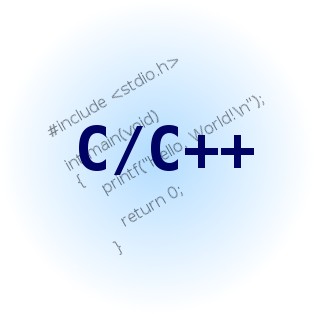
Programming in C l9.2/2
Contents
1 Introduction 1
1.1 About this Userguide 1
1.2 Why use C? 1
2 An Example C Program 2
3 Variables and Expressions 3
3.1 Variable Declaration 3
3.2 Variable Types 3
3.3 Variable Names 4
3.4 Assignment 5
3.5 Arithmetic Operators 6
3.6 Increment and Decrement Operators 7
3.7 Cast Operators 7
3.8 Bitwise Operators ‡ 7
3.9 Promotions and Conversions ‡ 8
3.10 Parsing Rules ‡ 10
3.11 Symbolic Constants and The Preprocessor 11
4 Input and Output 11
4.1 Formatted Output — printf 11
4.2 Conversion Specifiers 12
4.3 Literal Constants 13
4.4 Formatted Input — scanf 15
4.5 Character I/O — getchar & putchar 16
4.6 End-of-File 17
5 Flow of Control 17
5.1 Relational and Logical Operators 17
5.2 Conditional Branching — if 18
5.3 Conditional Selection — switch 19
5.4 Iteration — while, for 20
5.5 Local Jumps — goto ‡ 21
5.6 Short Circuit Behaviour ‡ 22
5.7 Problems 22
5.8 Declaring Array Variables 23
5.9 Initialising Array Variables 24
6 Functions 25
6.1 Building Blocks of Programs 25
6.2 Return Value 25
6.3 Function Parameters 25OUCS October 1996
6.4 Variable Function Parameters 26
6.5 Function Definition and Declaration 26
6.6 Function Prototypes 27
7 Scope, Blocks and Variables 28
7.1 Blocks and Scope 28
7.2 Variable Storage Classes ‡ 29
7.3 Declaration versus Definition 29
7.4 Initialisation of Variables ‡ 30
8 Arrays, Pointers and Strings 31
8.1 Pointers are Addresses 31
8.2 Pointers are not Integers 31
8.3 The * and & Operators 31
8.4 Declaring Pointer Variables 31
8.5 Pointers and Arrays 32
8.6 Dynamically Sized Arrays 33
8.7 The NULL Pointer and Pointer to void 34
8.8 Pointer Arithmetic 35
8.9 Strings 35
9 Files 38
9.1 File Pointers 38
9.2 Opening a File 38
9.3 Program Arguments 40
9.4 I/O Streams ‡ 41
9.5 Redirection of I/O Streams ‡ 41
10 Structures, Unions and Fields 42
10.1 Enumerated Types 42
10.2 Defining New Names for Types with typedef 43
10.3 Structures 44
10.4 Unions ‡ 45
10.5 Fields ‡ 46
11 More Advanced Topics ‡ 46
11.1 Comma Operator 46
11.2 Conditional Operator 47
11.3 Name Spaces 47
11.4 Type Qualifiers ‡ 47
11.5 Functions as Parameters 48
11.6 Preprocessor Macros 49
11.7 Assertions 50
12 Managing C programs 51
12.1 Separate Compilation 51
12.2 Conditional Compilation 52October 1996 OUCS
12.3 Using Projects in Borland C++ 53
12.4 Unix and C 53
12.5 Header file locations 54
13 Memory Usage ‡ 54
13.1 Text Area 54
13.2 Data Area 55
13.3 The Stack 55
13.4 The Heap 56
13.5 Possible Problems 56
14 C and the IBM PC ‡ 57
14.1 Memory Organisation 57
14.2 BIOS (Basic I/O System) Interrupts 58
14.3 DOS Interrupts 61
14.4 Dynamic Link Libraries (DLLs) 64
14.5 Windows Application Programming Interface (API) 64
15 Why C? 65
15.1 Evolution of the C Language 65
15.2 C and Operating Systems (esp. Unix) 65
15.3 Comparison with Pascal And Fortran 66
15.4 Availability 66
15.5 Portability 66
15.6 Efficiency 66
15.7 Modular Programming and Libraries 67
15.8 Applications 67
15.9 Kernighan & Ritchie C vs. ANSI C 68
15.10 Criticisms of C 68
16 Other Courses of Interest 68
17 Bibliography 68
18 Exercises 69
19 Operator Precedence Table 79
DOWNLOAD COURSE








0 comentarios:
Publicar un comentario